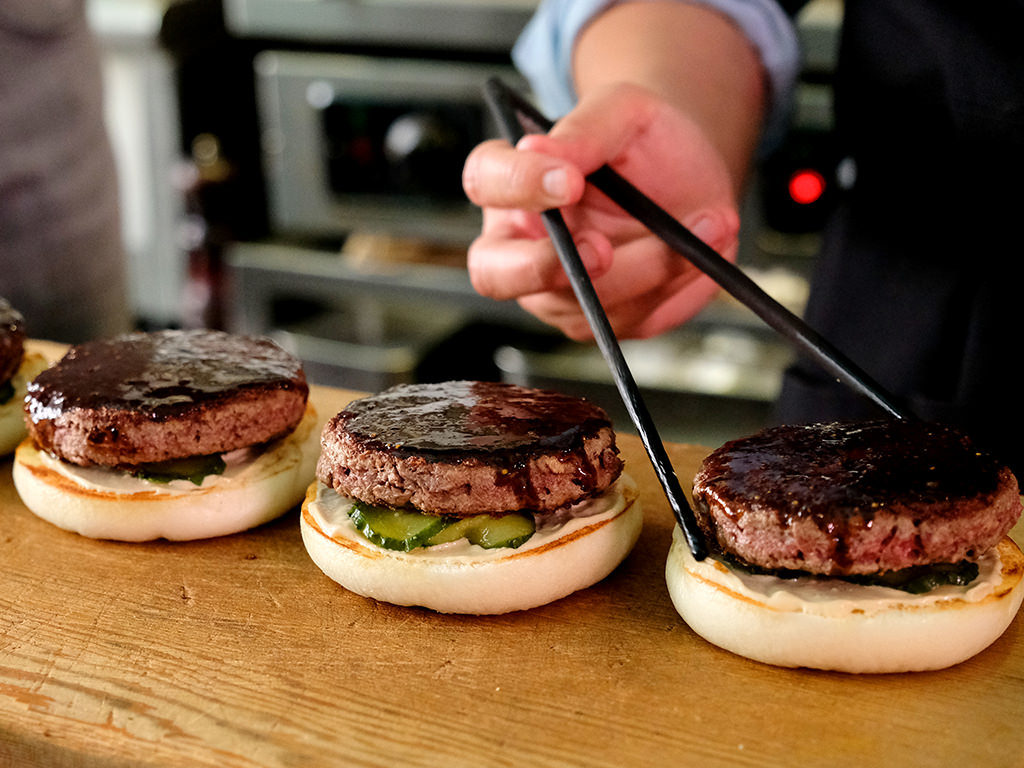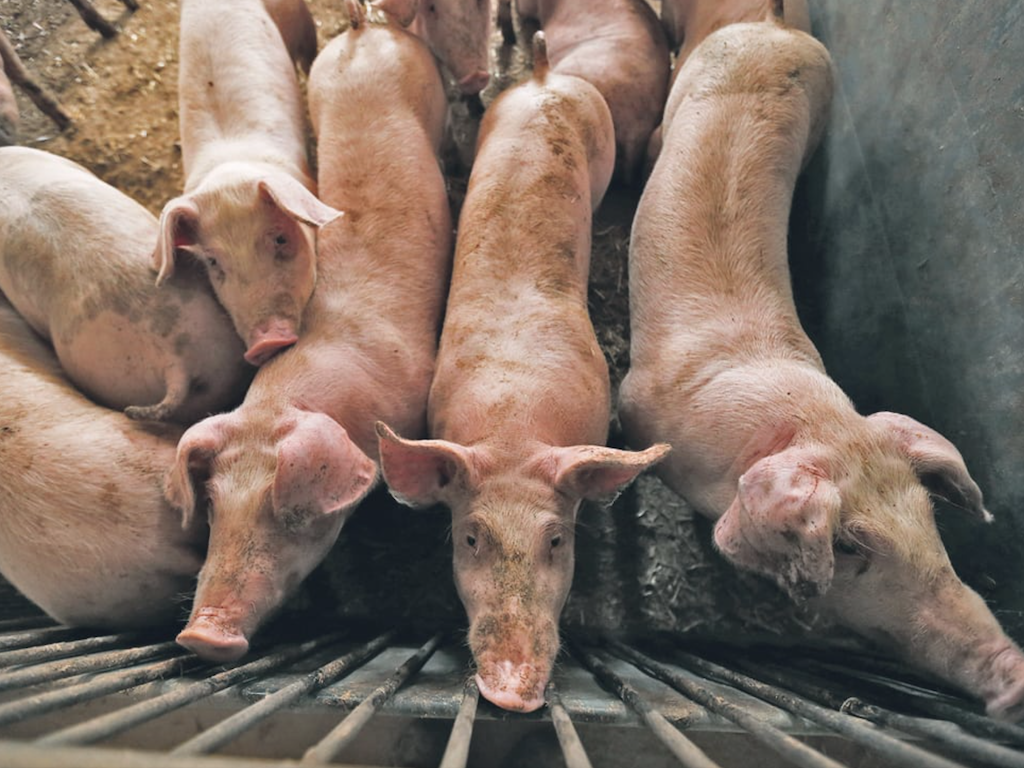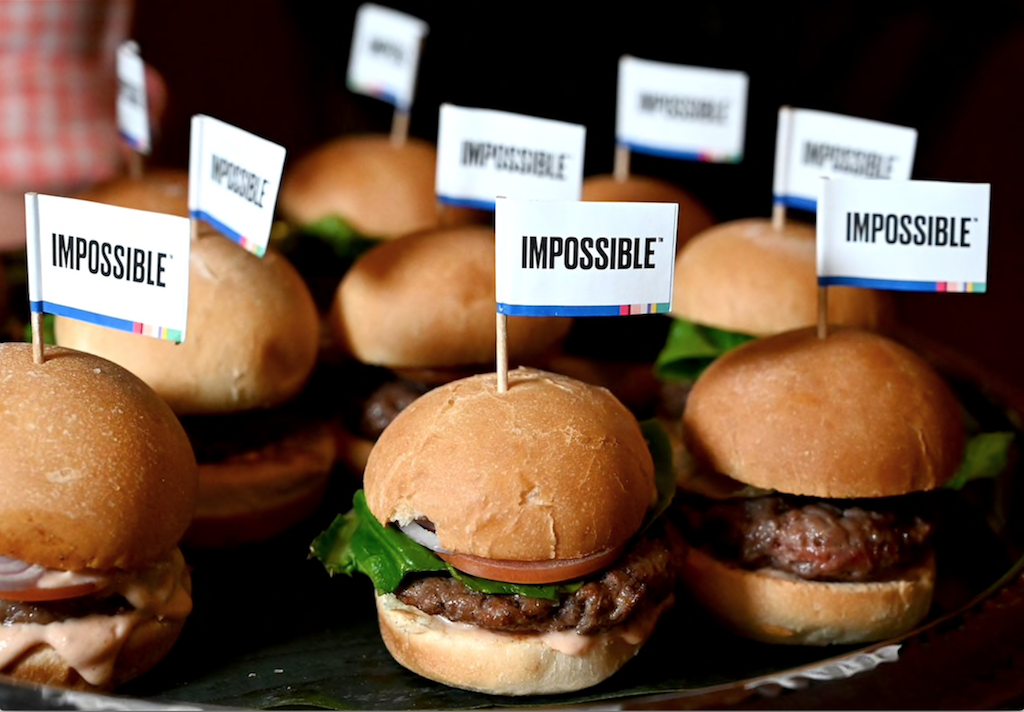5 Mins Read
The Impossible Burger by Silicon Valley startup Impossible Foods has just made its formal launch in mainland China this week at Shanghai’s China International Import Exposition. Throughout the expo event from 5th November – 10th November, Impossible Foods will be serving almost 50,000 samples of its plant-based burgers to visitors. What with the sheer size and spending power of the Chinese consumer market, this marks a major breakthrough for the ambitious alternative protein company, especially with its aim to disrupt the unsustainable global food system. The California based company also chose the China show to announce that it is working on its own plant-based pork analog, at a time when the country, and the rest of Asia, is battling the African Swine Fever (ASF) epidemic involving a global cull of millions of pigs.
During the China International Import Expo held in Shanghai, Impossible Foods’ flagship product, the Impossible Burger, will be served to almost 50,000 consumers. The plant-based startup will also be hosting a cooking show with MasterChef Jereme Leung, who will showcase modern plant-based takes on traditional Chinese dishes, such as Impossible Lion’s Head Dumpling in Broth and Impossible Siew Mai.

Speaking on the use of the plant-based meat in Chinese delicacies, Jereme Leung said that it “blends seamlessly, and the wonderful chemistry between them delivers rich taste…with a much smaller carbon footprint.”
READ: Beyond Vs. Impossible – A Full Comparison
Indeed, Impossible Foods launching in China – the world’s most populous country – has a real potential to make an impact on our unsustainable consumption practices and broken food system. As of right now, China is the biggest consumer of meat globally, eating 28% of world supplies of meat, one of the most carbon-hefty and resource-intensive foods on earth. The animal livestock industry has repeatedly been labelled as one of the primary polluters in the world, accountable for 18% of global greenhouse gas emissions (more than all global transportation combined) according to UN Food & Agriculture Organisation (FAO) figures – not to mention water and land usage on top of emissions.
And the trend is worrying: with China’s population and economy still growing, global demand for meat will continue to skyrocket, which poses real issues for our planet’s sustainability. This means that convincing consumers in China that plant-based is the way to go is crucial if we are to be able to transition into a more sustainable global food system.
“China is well positioned to be a world leader in the shift to a sustainable food system…By transitioning to plant-based meat, China can help boost quality of life for everyone, avert biodiversity collapse and reduce the impact of global warming,” said Impossible Foods’ CEO and founder Patrick Brown.

The debut of Impossible Foods in China follows their other successful launches around key locations in Asia, including in Hong Kong, Singapore and Macau earlier this year. Since Impossible’s inception into the region, the plant-based beef analogue has found its way into hundreds of menus, from celebrity establishments like Gordon Ramsay to burger chain Triple O’s. In Asia alone, the startup has experienced a five-fold increase in sales.
One of the main reasons behind this drive are consumers, who are trending towards more ethical and responsible choices. A recent study published in Frontiers in Sustainable Food Systems, for instance, found that Chinese and Indian consumers exhibited great levels of approval for plant-based and “clean” cultured meat products – they were twice as likely to buy alternative meat options than their counterparts. Even elite Chinese consumers have switched gears: a HSBC survey found that 73% of this demographic cite making a positive impact more important than wealth.
Another driver of the plant-based alternative industry in China is the country’s current struggle with the African swine fever, wiping out supplies of the preferred choice of meat in the region: pork. Home to half the world’s pigs, the outbreak of the epidemic has led to over 100 million pigs being culled by authorities. And with no end in sight, some experts suggest that as many as a quarter of the world’s pigs will be killed. Eyeing the potential gains to be made here, Impossible Foods is currently working to launch a plant-based pork in China too.
“We already have very good prototypes of plant-based pork. It’s really just a matter of commercialising and scaling that…this is an opportunity as people are going to realise how vulnerable animal-based food production is. It’s a real food security issue and we want to help China solve that,” said Brown in a Bloomberg television interview at the expo in Shanghai.

Alongside the Silicon Valley foodtech startup are a number of other brands also looking to make inroads into Chinese plates with different animal product alternatives, such as JUST, who have started to capitalise on the Chinese market with their mungbean-based scrambled egg available on retail shelves. Beijing-based startup Zhenmeat is capturing their local consumers with their pea-protein and fungus meat analogs tailored to Chinese cuisine dishes, from dim sum to mooncakes.
READ: 10 Traditional Chinese Dishes That Are 100% Vegan
Despite current trends indicating China’s position as a meat (especially pork) addicted country, China has in fact enjoyed a rich history of plant-based food culture thanks to traditional Buddhist influences. While fake meat products have surged in the Western world for the past few years, these mock meats – made out of mushrooms, nuts, beans and vegetables – have been around in Buddhist cuisine dating as far back as the 10th – 12th century. Today, around 20% of China’s population (250 million people) still practice Buddhism, which helps to explain the 300 restaurants offering veggie-based mock meats in Beijing alone – way before foodtech startups like Impossible hit the market.
Lead image courtesy of Getty Images.




